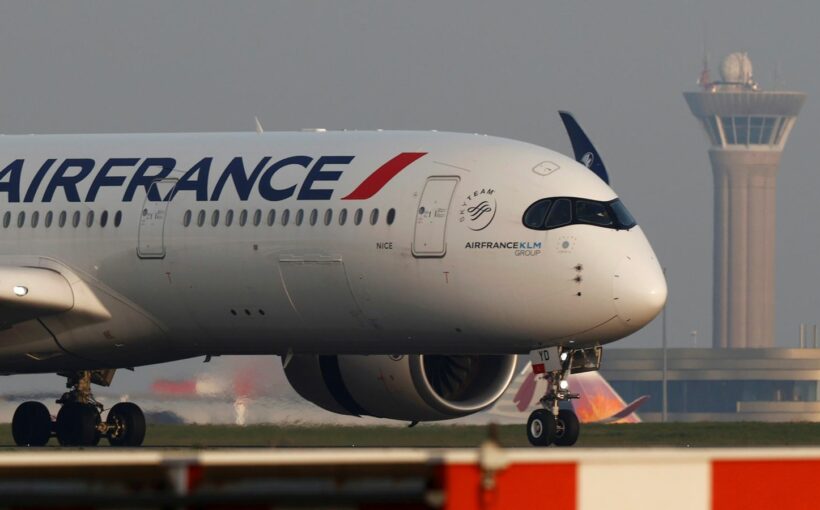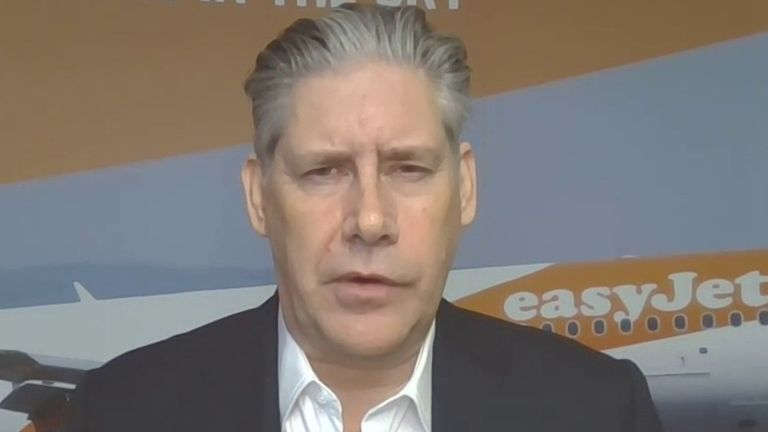The European Union has approved a massive bailout for Air France, despite concerns this could give the carrier an unfair advantage over competitors.
France will contribute up to €4bn (£3.4bn) to a recapitalisation of Air France-KLM and more than double its stake in the airline group to almost 30%.
The aid package comes as the airline, like many around the world, struggles with the effects of the COVID pandemic.
It was welcomed as “good news” by French Finance Minister Bruno Le Maire, but European Commission Vice President Margrethe Vestager warned it would come “with strings attached”.
In return for the funding, Air France will relinquish 18 take-off and landing slots at Paris-Orly airport (about 4% of its allocation there).
But the reallocation of the slots will be restricted to aircraft based at Orly with crews employed on local contracts, a move that would freeze out many low-cost competitors.
Mr Le Maire had described the slot allocation restrictions as “one of the sticking points” in talks with Brussels.
Air France-KLM chief executive Benjamin Smith said this would shield Air France’s budget carrier Transavia from unfair competition.
Mr Smith said: “These first recapitalization measures are an important milestone for our group in this exceptionally challenging period.
“They will provide Air France-KLM with greater stability to move forward when recovery starts, as large-scale vaccination progresses around the world and borders reopen.”
The group expects an operating loss of about €1.3bn (£1.1bn) for the first quarter of 2021.
Air France-KLM received €10.4bn (£8.9bn) in government-backed loans last year.
EasyJet chief executive Johan Lundgren said he was “concerned about the scale of these bailouts”.
He told Sky’s Ian King Live programme: “I’m not against aid as such, because to some extent this (the pandemic) has gone way beyond what you can expect the industry to deal with.
“I think it’s the scale and the billions and billions being pumped into some of the legacy airlines out there.
“If that money and funds are not there purely to survive but actually to grow market share and take advantages and for investment that they otherwise couldn’t afford, that’s not fair and that distorts the level playing field and we can be very mindful to make the competition authorities aware of that.”
Source: Read Full Article

